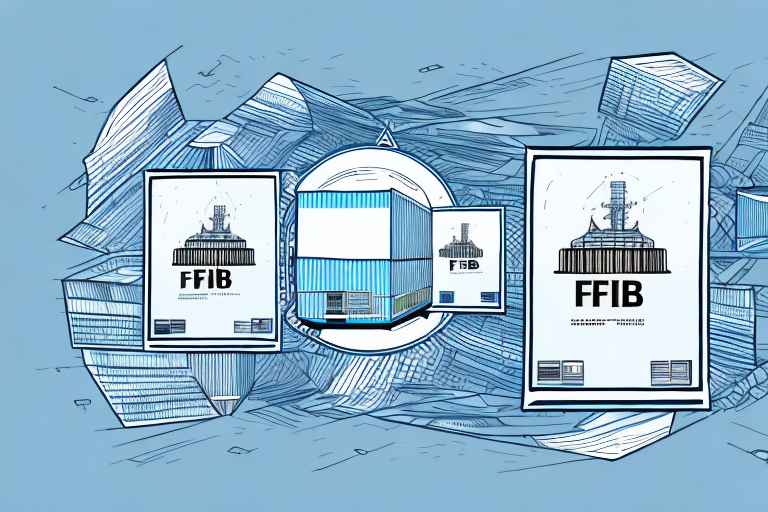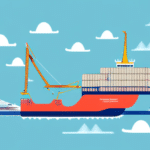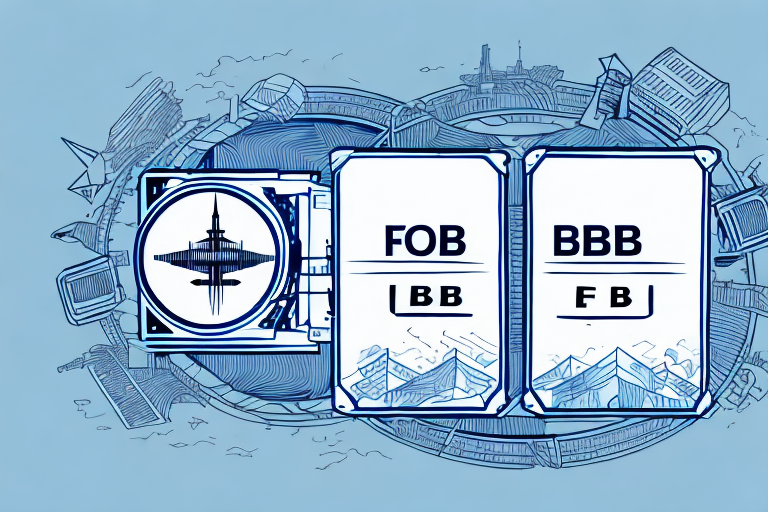Understanding FOB Destination Shipping
FOB (Free On Board) destination is a shipping term that delineates responsibility and ownership of goods during transit. Under FOB destination terms, the seller retains responsibility for the goods until they reach the buyer's specified location. This arrangement affects both the cost structure and risk management for buyers and sellers.
Transfer of Ownership and Responsibility
In FOB destination shipping, ownership and responsibility for the goods transfer from the seller to the buyer only upon delivery to the agreed destination. The seller bears all costs and risks associated with transporting the goods until they arrive at the buyer's location.
Impact on Financial Statements
For sellers, revenue recognition occurs upon delivery, potentially affecting cash flow and financial reporting. Buyers, on the other hand, include all transportation costs in their cost of goods sold, which can influence pricing and profitability. Understanding these financial implications is crucial for accurate accounting and strategic planning.
Advantages and Disadvantages for Buyers and Sellers
Benefits for Buyers
- Reduced Upfront Costs: Buyers are not responsible for arranging or paying for transportation, which can improve cash flow.
- Lower Risk of Damage: The seller handles logistics, potentially minimizing the risk of damage during transit.
- Enhanced Control Over Delivery: Buyers can rely on the seller to manage delivery schedules and ensure timely arrival.
Drawbacks for Buyers
- Dependence on Seller's Reliability: If the seller has poor logistics management, it can lead to delays or mishandling of goods.
- Higher Overall Costs: While buyers save on shipping arrangements, the cost may be reflected in the product pricing.
Benefits for Sellers
- Greater Control Over Shipping: Sellers can choose preferred carriers and negotiate shipping terms to optimize delivery.
- Enhanced Customer Satisfaction: Reliable shipping can improve buyer satisfaction and repeat business.
Drawbacks for Sellers
- Increased Responsibility: Sellers must manage logistics, which can be resource-intensive.
- Potential for Higher Costs: Bearing transportation costs can impact profit margins if not managed effectively.
Costs and Risks Associated with FOB Destination Shipping
Freight Charges
Freight costs are a significant component of FOB destination shipping. These costs vary based on factors such as the size and weight of the goods, distance, and chosen mode of transportation. According to the U.S. Department of Transportation, efficient freight management can lead to substantial savings.
Insurance and Liability
Both buyers and sellers must consider insurance coverage to protect against potential loss or damage during transit. Under FOB destination terms, the seller is liable until delivery, making comprehensive insurance essential to mitigate risks.
Customs and Regulatory Compliance
International shipments require compliance with customs regulations and import duties. Failure to adhere to these regulations can result in delays, fines, or confiscation of goods. Utilizing reputable customs brokers can help navigate these complexities.
Negotiating and Managing Logistics
Negotiating Favorable Freight Rates
Negotiating competitive freight rates involves comparing quotes from multiple carriers, leveraging bulk shipping discounts, and considering long-term partnerships. Tools like TradeStandard can assist in finding cost-effective shipping solutions.
Effective Logistics Planning
Strategic logistics planning includes route optimization, inventory management, and the use of logistics software to track shipments in real-time. Implementing technologies such as IoT devices can enhance visibility and efficiency in the supply chain.
Utilizing Technology for Efficiency
Adopting advanced logistics technologies like transportation management systems (TMS) and warehouse management systems (WMS) can streamline operations, reduce errors, and improve overall efficiency.
Legal Implications of FOB Destination Shipping
Liabilities and Obligations
Under FOB destination terms, the seller is legally responsible for the goods until they reach the buyer's location. This responsibility includes ensuring that the goods are properly packaged, labeled, and transported according to contractual agreements.
Dispute Resolution
Clear contractual terms and the use of internationally recognized standards, such as Incoterms, can help mitigate disputes related to delivery, damage, or loss of goods.
Choosing the Right Freight Carrier
Evaluating Carrier Reliability
Selecting a reliable carrier involves assessing their track record, customer reviews, and compliance with industry standards. The Federal Motor Carrier Safety Administration provides valuable information on carrier safety and reliability.
Assessing Carrier Capabilities
Consider the carrier's ability to handle specific types of goods, their geographic coverage, and the availability of additional services such as tracking and expedited shipping.
Cost vs. Service Quality
Balancing cost with service quality is essential. Cheaper carriers may offer lower rates but could compromise on delivery speed or handling care. It's important to evaluate the overall value rather than just the price.
The Future of FOB Destination Shipping: Trends and Predictions
Integration of Advanced Technologies
The logistics industry is increasingly adopting technologies like artificial intelligence (AI), machine learning, and blockchain to enhance transparency, efficiency, and security in shipping processes.
Emphasis on Sustainability
There is a growing trend towards sustainable shipping practices, including the use of electric vehicles, alternative fuels, and optimized routing to reduce carbon footprints.
Personalized Customer Experiences
Consumers are demanding more personalized and real-time tracking information. Companies are leveraging data analytics and IoT to provide tailored shipping experiences and improve customer satisfaction.
Global Trade Dynamics
Changing global trade policies and economic conditions can impact FOB destination shipping. Businesses must stay informed about international regulations and adapt their strategies accordingly.
By staying abreast of these trends and implementing best practices, both buyers and sellers can optimize their FOB destination shipping strategies to achieve greater efficiency and profitability.






















